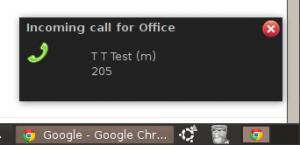They tell you a lot of stuff around a prostatectomy—before, during and after. Well not actually during, hopefully you’re fast asleep during, but definitely before and after. They talk about incontinence and impotence and pain management and deep vein thrombosis and catheter care and all sorts of other stuff. But nobody mentions pants1.
Which is bad. Because there’s a lot you need to know about pants if you’re having a prostatectomy. Here’s what I’ve learnt, in the hope that it might save some of you the pain of having to work it out for yourself.
Forget boxers. Boxers are bad. By which I mean the loose type. And that’s the big thing to know. Somewhere you’re maybe thinking “after all that surgery, I want loose, comfortable clothing”. No you don’t.
You’ll leave hospital with a catheter in. And probably with instructions to try to move, to go for a walk each day. You might think loose pants are good because they won’t trap the tube. That’s the least of your problems.
The thing is, when you go for a walk in loose, comfortable pants your willy swings about. And the tube that’s stuck in it swings about. And with each little swing it rubs a little. And before long the inside of your willy is getting mighty annoyed about this and decides to let you know the only way it knows how—by really hurting. Wear tight, close fitting pants. It’ll save you a lot of pain.
I didn’t work this out until the day before my catheter was removed, not until after a long walk around a local park. Fortunately, when my wife had collected me from hospital someone had left have a tube of lidocaine containing gel on the table by my bed, and she had the forethought to figure it might come in useful…
Once the catheter is out you’re going to pee yourself. Hopefully not much and not for long, but it’s going to happen, and nothing anyone says to you beforehand will prepare for just how humiliating this feels when it does. So you’re going to need pads. And pads are no damn use in loose pants. Once again you’re going to need something close fitting.
Close fitting pants come in a variety of designs. Which is best? All of them. No, that’s not any of them. It’s all of them. Make sure you have lots of different pants. Why? The pant wearing is relentless. There is no respite (OK, the bath, but how long can you spend in the bath?). You’ll be wearing pants all night as well as all day. And the pressure of the waist band on the wound really starts to irritate. So stock up on pants. Each time you buy pants in the run up to surgery, ask yourself these things:
- Are they close fitting?
- Is the waist band in a different place to all the other pants I own?
If you can answer yes to both questions, these are good pants. Even if they have a fuzzy, pink ‘My Little Pony’ design on them. Forget the look. Go for comfort.
- American readers please note: I’m British. ‘Pants’ to me are smaller and worn closer to the skin than your pants. This article is about underwear, underpants [↩]

